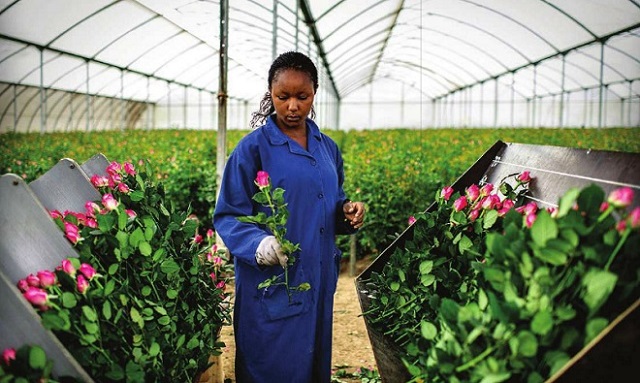
Kampala, Uganda | THE INDEPENDENT | The European Union has threatened to ban Uganda’s Agro Exports to Europe. This was revealed by the Minister of Agriculture, Animal Industries and Fisheries – MAAIF Vincent Ssempijja.
The Minister’s worries stem from a yellow warning the European Union issued over severe chemical contamination of horticulture produce being exported by farmers in the country, the third time in four years.
In 2015, hot pepper export to Europe was suspended for more than a month due to poor storage issues, pesticide residues and packaging amongest others.
Speaking at the annual National Agricultural Advisory Services- NAADS review meeting on Thursday, Ssempijja, said that several consignments of agriculture produce shipped to Europe have again been rejected and destroyed over poor quality and presence of high contents of poorly mixed agro chemicals used to treat or preserve them.
He says the European Union has resolved to audit the sector in October for compliance to international and European Union Health standards before slapping a fresh ban in the event of non-compliance.
According to the Agriculture Minister, the EU has set up a telecommunication hotline for alerting government on contaminated food consignment to Europe for government to track down farmers producing those bad agro-products alongside the middlemen who supply them to European markets.
According to Uganda National Bureau of Standards (UNBS), 80 percent of Uganda’s total exports consists of agricultural products with the most important commodity being coffee (22 percent of total exports) followed by tea, cotton, copper, oil and fish.
The house of Statistics says the volume of vegetable and fruit exports to European Union countries increased from 16.5 million tonnes worth US$16 million to more than 135.2 million tonnes worth US$45 million in 2013 alone.
Uganda’s main export partners are Sudan (15 percent), Kenya (10 percent), DR Congo, Netherlands, Germany, South Africa and the United Arabs Emirates. In June 2019, export volume decreased to USD 301.75 Million from USD 352.98 Million in May 2019, according to statistics from UNBS.
Ssempijja told local government officials and district production officers that the looming ban spells doom for a hailing sector of the economy employing 70 percent of the population, as government struggles to secure overseas markets for farmers.
Speaking with lots of dismay, Ssempijja said the EU has already indicated to government that some of the tests it conducted in Europe discovered the presence of harmful drugs such as marijuana in some of the cabbages imported from Uganda.
He explained that “the Marijuana drugs were found attached inside the cabbage heads. The experts concluded that farmers intentionally placed the illicit drugs during the early head formation for the leafy vegetable to naturally enclose them before maturity”
While it is common that desperate farmers resort to anything including ash, pepper and concocted herbs to spray their crops in the worst of pest and disease invasions, it is rare for commercial farmers producing for exports to a delicate European Markets to use Marijuana for spraying their crops and flowers.
Minister Ssempijja says the October audit is critical as it also seeks to establish whether Uganda has started implementing animal registration or put in place mechanisms to track farmer compliance to international standards for among others determining the age of livestock destined for exports to Europe.
“Whenever we tell farmers to register, people think we are crazy. It is standard regulation that we must know the origins of produce for us to regulate and guarantee food safety. In an event like this, we can precisely track down the produce to the very first producer” he stressed.
The Minister revealed that his ministry has had a spirited fight with importers of agrochemicals who have admitted to government that they remix chemicals and repackage to make a kill from their sales. He adds that while it is difficult to sort out the mess of counterfeit chemicals, veterinary drugs and pesticides flowing into the country, cabinet has endorsed a national war on counterfeits in the country.
Earlier, Gen Charles Angina, the deputy National Coordinator of Operation Wealth Creation-OWC told the same congregation that they are demanding that the Ministry of Agriculture take back the responsibility of importing agrochemicals and veterinary drugs from the hands of private players to decisively eliminate the menace of counterfeits in the country.
Last week, Uganda National Association of Community and Occupational Health (UNACOH) released a report of a yearlong study on the extent of contamination of community water sources and vegetables sold on most Ugandan markets indicating that tomatoes, the most consumed vegetable in Uganda is contaminated by up to eight different harmful pesticide residues.
The authors of the report stated that contamination assumes a seasonal trend, hitting its highest peak during the harvesting periods, June to July – the end of the first cropping season in Uganda. They extrapolated their graphs left, right and centre before concluding that the contamination trend is repeated for the second cropping season as farmers depend of heavy application of pesticides to restrain pests and diseases from reducing their yields.
The report warned that as Climate Change hits the country hard, Ugandans should brace for worsening contamination episodes as farmers descend to grow food closer to banks of rivers, large water bodies and inside wetlands traditionally used as carbon and chemical sequestration sinks.
*****
URN
 The Independent Uganda: You get the Truth we Pay the Price
The Independent Uganda: You get the Truth we Pay the Price



